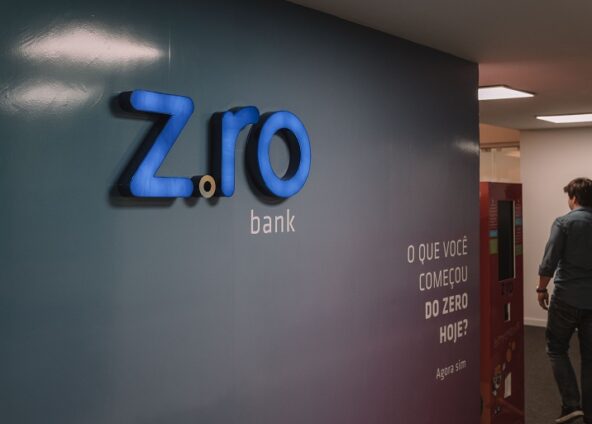According to a recent Forbes article, Santa Catarina, located in the south of Brazil, is determined to increase its position in the country's innovation scenario, taking advantage of unique factors that differentiate it from other states. The epicenter of the state's innovation scene is its capital, Florianópolis, known for having the highest density of startups per inhabitant in Brazil. Therefore, with a population of just 500,000, the city has emerged as the driving force behind the state's technology boom, focusing predominantly on B2B models. That is, in which companies design systems for other organizations instead of end consumers.

Florianópolis: A cradle of successes
Florianópolis was the birthplace of successful ventures that went through some of the biggest mergers and acquisitions in Brazil. Such as RD Station, a digital marketing company acquired by software giant Totvs, and Neoway, a big data company purchased by B3, both for around $340 million in 2021. Additionally, the state is home to established technology companies that precede the startup boom and also welcomes emerging companies and global giants such as Mercado Livre, Zoho and Zucchetti.
“Faced with its challenges, such as the lack of significant oil or mineral reserves and the absence of vast agricultural lands, added to natural adversities such as droughts, floods and hurricanes, Santa Catarina had to turn to an alternative economic base to guarantee growth ”, said Marcelo Fett, a veteran of the sector and the first Secretary of Science and Technology of Santa Catarina. In this way, the creation of the secretariat supports the collective objective of the Santa Catarina ecosystem of accelerating the state's technology industry. Which is currently made up of 22,125 technology companies with a combined turnover of approximately $4.5 billion. And thus, it represents 6% of the state's GDP.
Therefore, this places Santa Catarina as the sixth largest technological hub in Brazil. The objective now is to double this contribution by 2026. Through measures such as granting credit to entrepreneurs. As well as, the expansion of student loans and financial incentives for research-oriented companies within the state. More details on this to be revealed later this year. “[Santa Catarina] is a state with a lot going for it, especially when it comes to technology. And it needs modernization to go even further”, said the state governor, Jorginho Mello, in an interview with the journalist Angelica Mari, from Forbes.
Entrepreneurial spirit driven by scarcity
Inherently risky in their personal lives, immigrants have contributed to the local entrepreneurial spirit, Engelmann said, adding that their willingness to take risks, combined with the scarcity of opportunities rooted in local culture, has catalyzed the creation of countless startups. “We are a state made up of immigrants, who depended on mutual aid to survive. This naturally promotes entrepreneurship and association, generating tangible results”, he noted.
Another fundamental reason why the technology ecosystem in Santa Catarina is so significant compared to its GDP is scarcity, according to Rafael Assunção, partner at a Florianópolis-based mergers and acquisitions firm, Questum. “The state has a limited number of corporate jobs, especially compared to states like São Paulo or Rio. Additionally, there are high-quality universities that train countless talents. Which are not necessarily absorbed by large corporations”, said Assunção. Adding that this scenario results in a unique situation. With limited opportunities, entrepreneurship becomes one of the few viable paths.
Assunção makes a comparison between Santa Catarina and Israel, emphasizing how limitations can boost innovation. “Both places, although distinct in nature, are marked by a scarcity of resources. In other words, it makes people think outside the box”, observed the investor.
Therefore, this ecosystem driven by scarcity in Santa Catarina and the lack of a large consumer market led to the proliferation of B2B startups. In this way, these companies tend to be more capital-efficient and customer-centric: rather than relying on large sums of external capital, these startups focus on creating real value for customers. “This set of characteristics makes [local startups] particularly attractive to investors and strategic partners, as they offer solutions tested and validated in the market,” noted Assunção.
Sectors with High Growth Potential
When asked about specific sectors with high growth potential, Assunção pointed to fintechs and retail techs. “These sectors are poised to benefit from new technologies, especially with the current wave of innovation around artificial intelligence. They handle transactional volumes and vast data, serving consumers increasingly hungry for personalized experiences,” he said.
Preparing for a global market
The next frontier for Santa Catarina's technology sector, according to ACATE's Engelmann, is global reach. “We are well positioned and it is time to fly our flag internationally. In other words, showing that global expansion is an integral part of the journey of local entrepreneurs”, he highlighted.
Startups from Santa Catarina have already started to make their mark globally. Among them, Decora, a company that provides 3D decoration scenes for retailers, is a successful example. Sold to the American company Creative Drive in 2018. The company's technology is now used by some of the largest retail chains in the world. Like Apple and Walmart. “The large and complex Brazilian market encourages entrepreneurs to create world-class solutions,” said Assunção.
Challenges and opportunities
One of the challenges for this Brazilian ecosystem is to develop the ability to better narrate and promote its success stories. According to Questum’s Assunção: “While the state may not have gigantic success stories like Silicon Valley… It has hundreds of smaller but significant victories that are worth celebrating.”
With information @ Luxury Home Floripa and Matter in English on Forbes.


